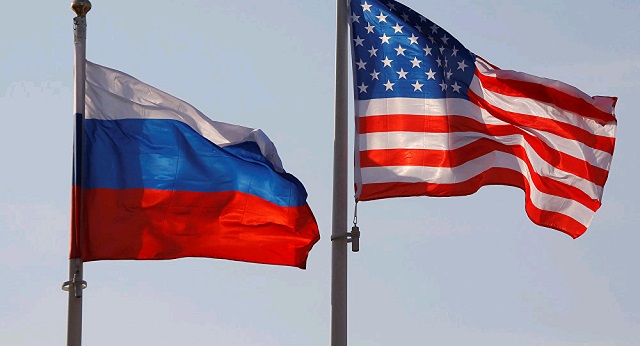
A visit to Russia and witnessing the lost opportunities for cooperation with the West
THE LAST WORD | Andrew M. Mwenda | This week, I landed in St. Petersburg, my first time to visit Russia, to attend a BRICS conference. There were very few people at the airport, so I went through immigration easily. I suspect this is because Western sanctions have reduced the volume of human traffic to this historic city built on the Baltic Sea by Peter The Great, the Russian emperor who defeated Charles VII of Sweden in 1709.
I mention this because Russia has been invaded four times from the West; and in 1941 came close to being annihilated by Adolf Hitler. This memory remains strong in the political psychology of this country and explains its paranoia with America’s forever-efforts to extend NATO onto its doorstep. I will return to this in the conclusion.
My arrival in St Petersburg was fairly smooth. The immigration officer clearing me spoke excellent English. But like most immigration officials, especially in Mzungu (but also in non-Mzungu) countries, she spent a lot of time examining my passport and scrutinizing my visa.
After that, I went through yet another procedure just before exit. Yet, in spite of my violations of Russian immigration policy (I will keep these private) I was not jailed. Instead, the lady who handled me was polite and explained that under Russian immigration policy, I should not have carried this and that.
She also spoke excellent English and forgave my transgressions and asked me to proceed. This was rare for me who has travelled in Western countries that claim to be post racial but treat Africans and other non-Western persons going through their airports as criminals.
At my hotel, I was greeted by young Russians all of whom spoke fluent English. They acted friendly and made me feel at home. This has also largely been my experience in all countries, Western and non-Western that I have visited. Average people are very welcoming of foreigners.
It seems immigration officials in most countries, the first encounter with any country for a visitor, are trained to be mean. This is especially true in Western countries where they think non-white people are looking to stay in their countries illegally.
Be that as it may, St Petersburg is a beautiful place to be. In bars and restaurants, waiters, waitresses and bartenders all speak fluent English. Russia is a highly Westernized country and the people here seem to admire Western ways. This was not surprising to me who has read Russian history from Catherine The Great to Vladimir Putin.
Russia has always sought to emulate the West and to be part of it. Instead, it has always been treated with suspicion and disdain by Western nations who always want to lecture and hector it. This is the crux of the hostility between the two sides – Russia seeking acceptance as an equal partner and the West trying to make it a junior partner who should be lectured as a child.
I left Kampala after finishing reading an excellent book by Peter Conradi titled Who Lost Russia. Although written with Western assumptions, it provides important insights into the recurrent wrangles between Moscow and the West. The West always seeks to lecture and to hector the Russians, never caring to listen to their concerns, anxieties and interests.
Even during the heyday of the Mikhail Gorbachev years, when George Bush Sr as US President tried to listen and understand, the relationship was always fraught with Western hubris undermining mutual understanding. But at least Bush Sr tried to listen. He was the last of his type.
Conradi quotes an incident during the Serbian crisis in 1998 when one of the admirers of the US inside the Kremlin, foreign minister, Yevgeny Primakov, told Bill Clinton’s secretary of state, Madeleine Albright, that “It is bad enough for you guys to lecture us like children on how we should behave. But it adds insult to injury when you ask us to do what you want claiming that it is in our own interest to act like your children.”
All political leaders outside the West have experienced this Western hubris, the belief that they know best what others need and all that others have to do is listen and obey. President Yoweri Museveni has called this attitude “insufferable.”
Conradi also quotes many circumstances when Bill Clinton would insist to his colleagues that they listen and appreciate the dilemma and challenges of Russian president Boris Yeltsin. However, in almost all cases, “the system’s” domineering attitude prevailed and Clinton yielded.
So here I am in Russia and most people would like to be associated with the West. They drive Western cars, wear Western clothes, follow Western trends, watch Western movies, enjoy Western cuisines, speak English, etc. But they are always considered second class members of the Western world; being part of the West is to be relegated to a junior position in the partnership where their role is to listen and obey what big brother says.
This strikes me as self-destructive. The West is facing a rising China and in three to five decades will have to confront a giant India. If we add on Indonesia as another rising giant, Western hegemony, especially in Asia, is coming to an end sooner than later.
This is an inevitable historic development. All the tricks America may employ to slow down China can only help the rise of yet another regional giant, India. The best strategy is to behave like Britain at the time of the rise of the US – build an alliance with a rising power to avoid falling into what Graham Allison calls ‘Thucydides’ Trap.’
An observation of Russian geography and a reading of Russian history shows that this country is always paranoid about an attack from the West. Western Russia is flat without natural defensive barriers.
As a result, four times in the recent past, Russia has been invaded from the West. First by Charles VII, then by Napoleon, then Wilheim II and finally Adolf Hitler. In each of these encounters, its existence has come under severe threat. Taking NATO to its doorstep poses an existential threat to Moscow. Yet strategically, the US should not begin a war with Russia, a declining power, because its actual peer competitor is China.
In the coming confrontation between China and the USA, on whose side would America want Russia to be? Since the answer is obvious, why keep pushing Russia into China’s arms? This may be the first time a major power has actively worked to unite her enemies instead of dividing them.
******

amwenda@independent.co.ug
 The Independent Uganda: You get the Truth we Pay the Price
The Independent Uganda: You get the Truth we Pay the Price



1.The world has witnessed many political, social and economic reforms in that the West and USA may be living in the past glory.The world now is faced with new challenges for example;
(i)How real is terrorism in this era and how can it be contained?
(ii)How should the world super powers respect each others’ space?
(iii)Is activism and blackmail the new world order?
(iv)Why does every nation think that they have unresolved issues with USA?
(v)Is the world in a social dilemma because of the leaders of the past portrayed some nations and peoples as inferior and they are now making a come back?
(vi)People have different personalities the Americans are loud and proud of their great innovations in the field of Aviation,ICT ,entertainment,Medicine ,Education,military intelligence so is it their personality that makes the poor nations irritated?
(vi) No nation can stand firmly when there are trade embargos and economic sanctions agasinst them. Russia is economically strained.
(vii) The wold is supposed to be a global village but the international dynamics are complex thats why nations have close boundaries inform of trade and Military blocks;we have the G7,Arab league ECOWAS,EAC ,EU,AU,NATO.
(viii) Has immigration changed the political dynamics?The world is now witnessing the rise of former immigrants taking key positions in governments for example; the Prime Minister of Britain is an Indian,MPs in France are Africans or Muslims dont these people share key information with wrong global elements?